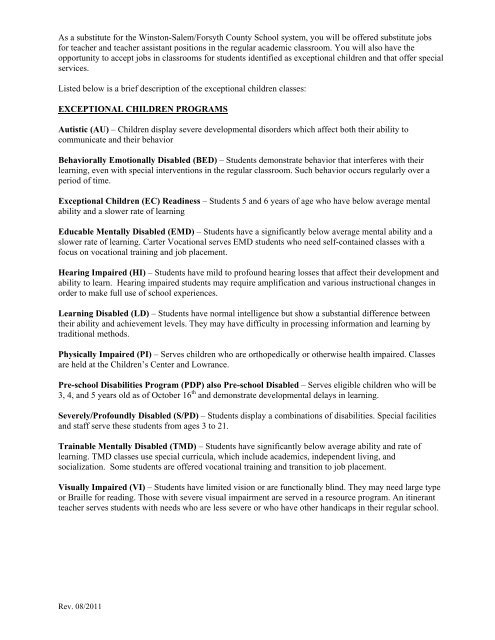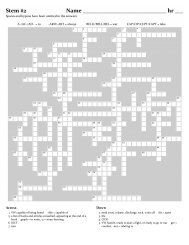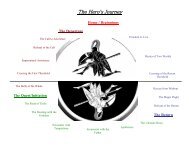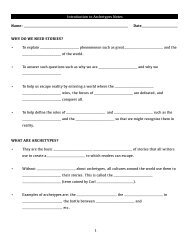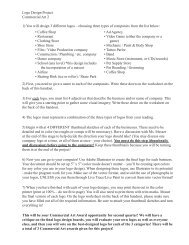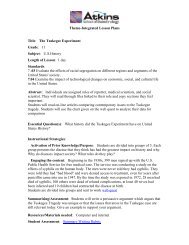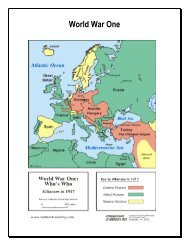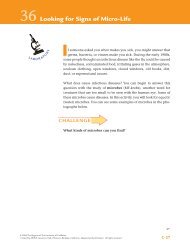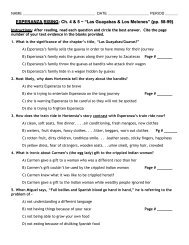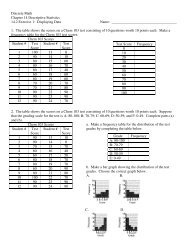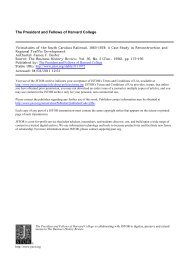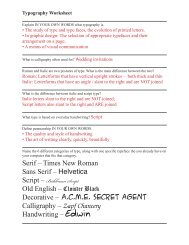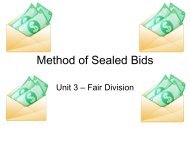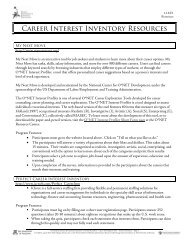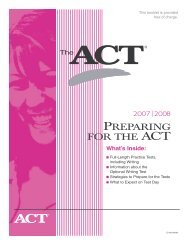WS/FCS Schools 2012-2013 - Winston-Salem/Forsyth County Schools
WS/FCS Schools 2012-2013 - Winston-Salem/Forsyth County Schools
WS/FCS Schools 2012-2013 - Winston-Salem/Forsyth County Schools
Create successful ePaper yourself
Turn your PDF publications into a flip-book with our unique Google optimized e-Paper software.
As a substitute for the <strong>Winston</strong>-<strong>Salem</strong>/<strong>Forsyth</strong> <strong>County</strong> School system, you will be offered substitute jobsfor teacher and teacher assistant positions in the regular academic classroom. You will also have theopportunity to accept jobs in classrooms for students identified as exceptional children and that offer specialservices.Listed below is a brief description of the exceptional children classes:EXCEPTIONAL CHILDREN PROGRAMSAutistic (AU) – Children display severe developmental disorders which affect both their ability tocommunicate and their behaviorBehaviorally Emotionally Disabled (BED) – Students demonstrate behavior that interferes with theirlearning, even with special interventions in the regular classroom. Such behavior occurs regularly over aperiod of time.Exceptional Children (EC) Readiness – Students 5 and 6 years of age who have below average mentalability and a slower rate of learningEducable Mentally Disabled (EMD) – Students have a significantly below average mental ability and aslower rate of learning. Carter Vocational serves EMD students who need self-contained classes with afocus on vocational training and job placement.Hearing Impaired (HI) – Students have mild to profound hearing losses that affect their development andability to learn. Hearing impaired students may require amplification and various instructional changes inorder to make full use of school experiences.Learning Disabled (LD) – Students have normal intelligence but show a substantial difference betweentheir ability and achievement levels. They may have difficulty in processing information and learning bytraditional methods.Physically Impaired (PI) – Serves children who are orthopedically or otherwise health impaired. Classesare held at the Children’s Center and Lowrance.Pre-school Disabilities Program (PDP) also Pre-school Disabled – Serves eligible children who will be3, 4, and 5 years old as of October 16 th and demonstrate developmental delays in learning.Severely/Profoundly Disabled (S/PD) – Students display a combinations of disabilities. Special facilitiesand staff serve these students from ages 3 to 21.Trainable Mentally Disabled (TMD) – Students have significantly below average ability and rate oflearning. TMD classes use special curricula, which include academics, independent living, andsocialization. Some students are offered vocational training and transition to job placement.Visually Impaired (VI) – Students have limited vision or are functionally blind. They may need large typeor Braille for reading. Those with severe visual impairment are served in a resource program. An itinerantteacher serves students with needs who are less severe or who have other handicaps in their regular school.Rev. 08/2011


